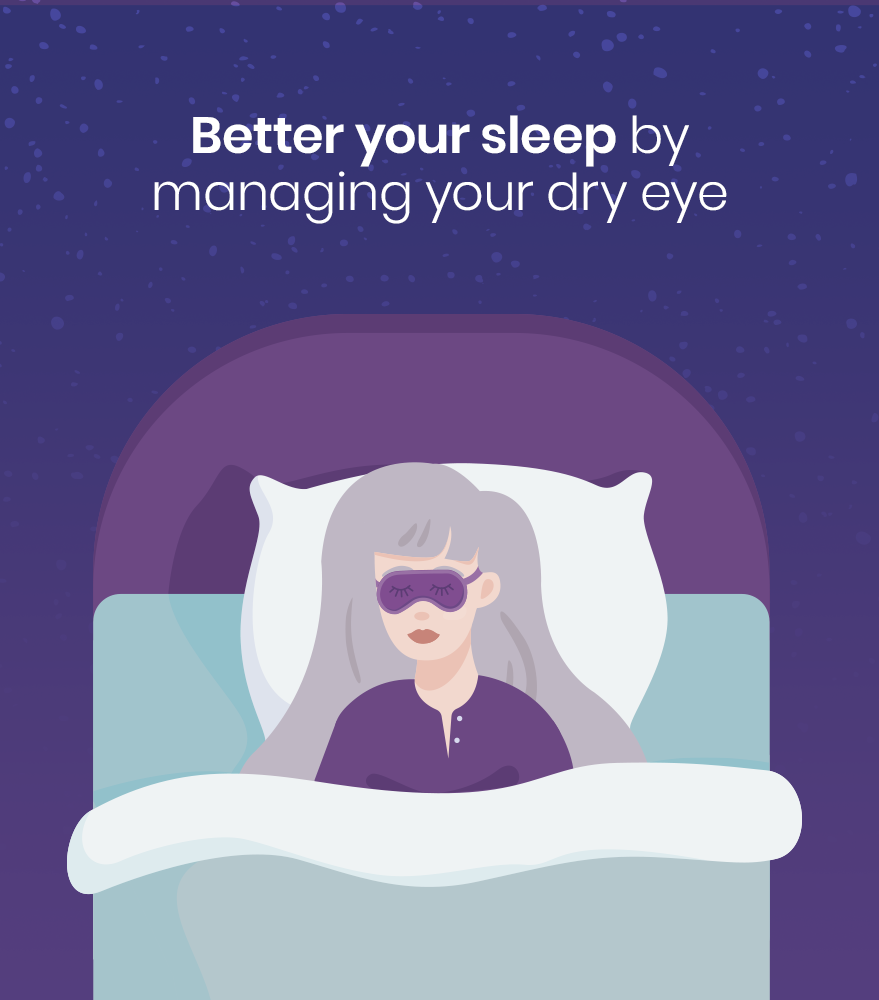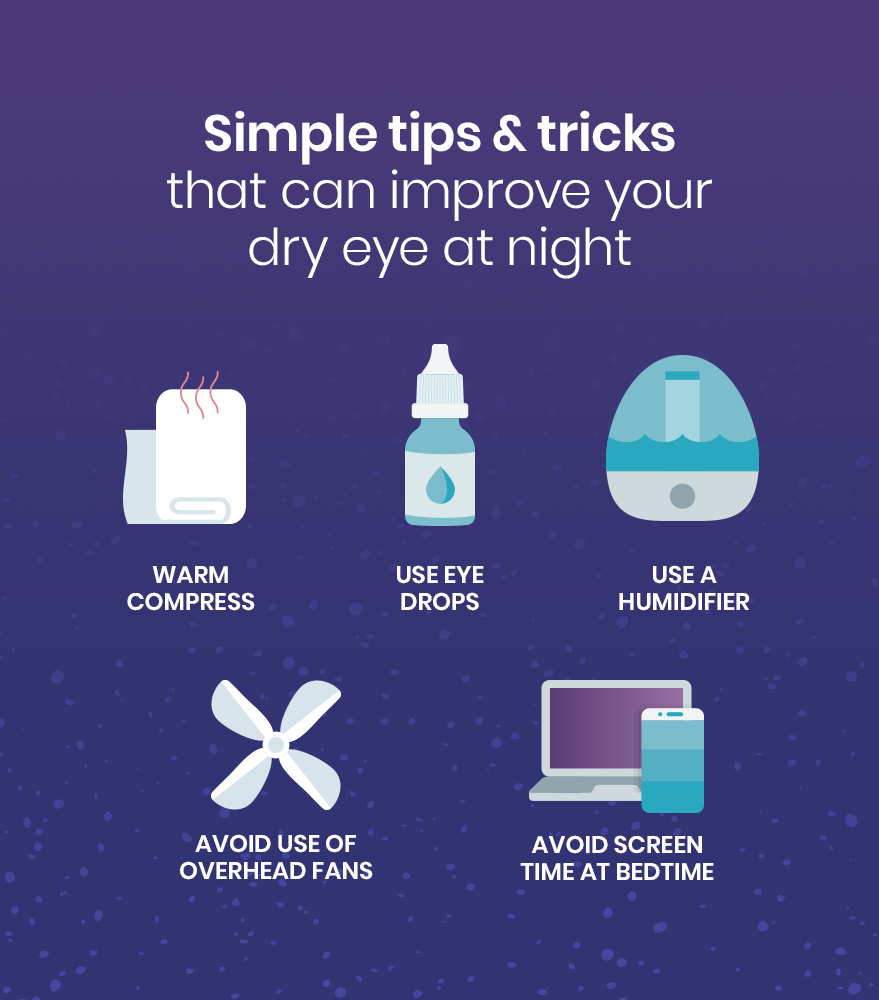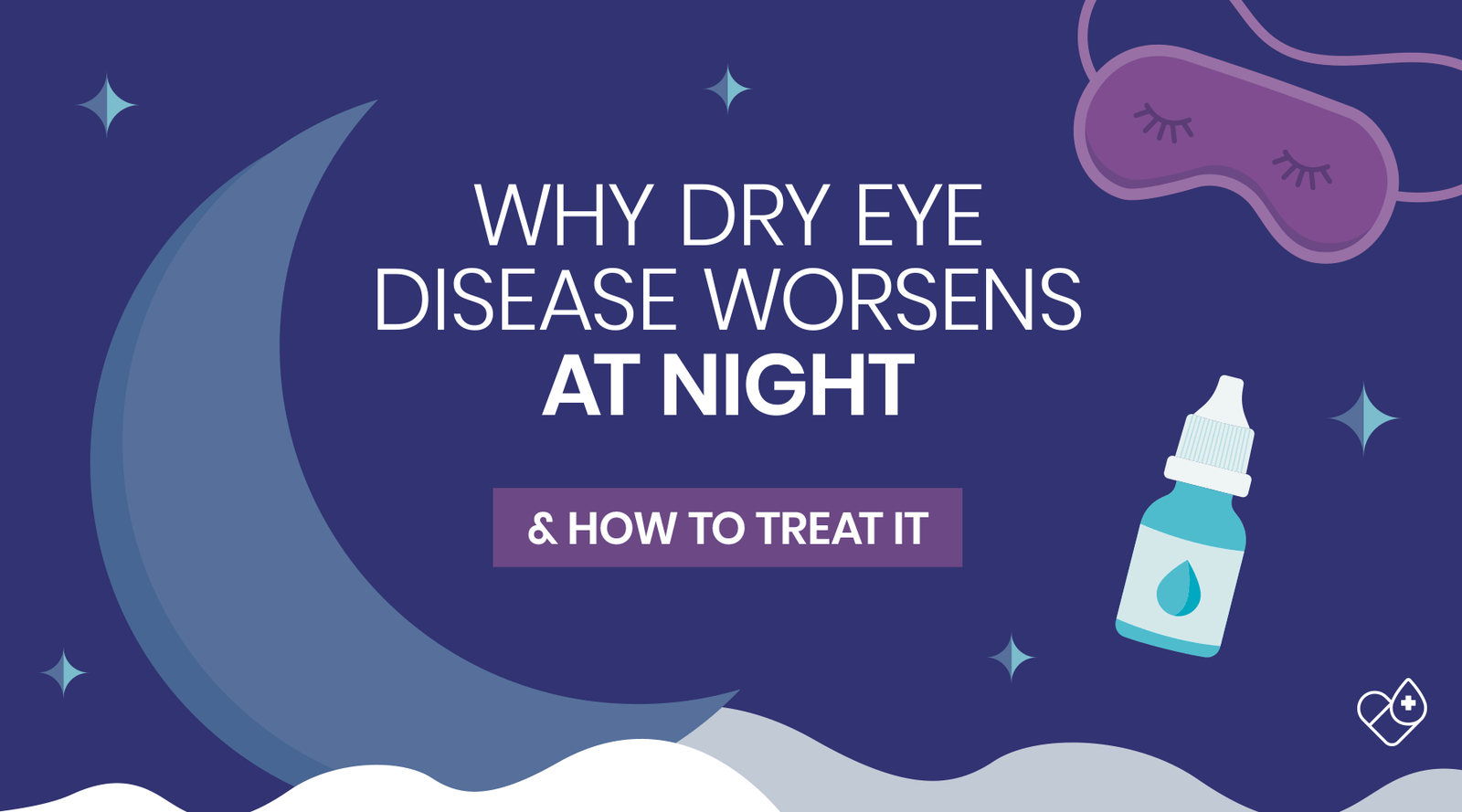Dry eye disease is a common condition that affects millions of people worldwide. People suffering from this disease experience various symptoms, including burning, itching, redness, and tearing. What most people don't know is that dry eye disease tends to worsen at night. In this article, we will explain why dry eye worsens at night and what we can do to manage it.
Causes of dry eye disease at night:
Dry eye symptoms can primarily occur due to a lack of tear production or poor-quality tears. When we sleep, we produce significantly fewer tears than when we are awake¹, and we aren’t blinking to refresh the tear film regularly. This means that our tears are left stagnant for longer which can result in increased absorption or evaporation. In addition, some people may not get a perfect seal between their eyelids when their eyes are closed, which can significantly increase evaporation and expose the surface of the eye to dry air – leading to worse dry eye symptoms on awakening.
How dry eye affects sleep:
People affected with dry eye can experience difficulty in sleeping well. Studies have shown a correlation between dry eye and reduced sleep quality, but the exact reason why has not been discovered². What we do know is that poor sleep quality and sleep disturbances can lead to daytime tiredness, decreased productivity, and other health issues.

How to help manage dry eye disease at night:
Luckily, management of dry eye disease has been proven to be effective. Here are some tips to manage dry eyes at night:
- Warm compress – The eyelid glands tend to secrete beneficial oils when exposed to heat. You can apply a warm compress on the eyes before going to bed to promote oil secretion which helps to reduce tear evaporation.
- Eye drops – Lubricating eye drops can provide temporary relief to dry eyes by lubricating the eyes. Consider using a thick tear, such as a gel tear or artificial tear ointment at night (right before bed) to help reduce tear evaporation while sleeping.
- Humidifier - Investing in a humidifier helps to add moisture to the air and maintain a healthy humidity level in the house, which can reduce some dry eye symptoms.
- Avoid the use of overhead fans or fans directed at your face – significant air movement directed at your face can increase tear evaporation if there is an imperfect seal between your lids when your eyes are closed. If you like using a fan while sleeping, try a tower fan next to the bed directed toward your feet (away from your face).
- Avoid screen time close to bed – when using screens our rate of blinking tends to decrease, which can worsen symptoms of dryness. You can try turning your screens off sooner before heading to bed.

Seek medical advice
If the above tips do not help to alleviate the symptoms, it is advisable to seek medical advice from an eye doctor. An optometrist or ophthalmologist will perform a comprehensive examination to diagnose the cause of your dry eye syndrome. Based on the diagnosis, the eye doctor will recommend a suitable course of treatment to manage the disease. Need to find a dry eye specialist? You can find one here.
Dry eye disease is a common condition that can worsen at night. To manage this disease, we need to understand why it worsens and take suitable steps to alleviate the symptoms. By adopting healthy habits such as warm compress, using lubricating eye drops, investing in a humidifier, avoiding caffeine and alcohol before bedtime, and avoiding overhead fans, we can manage the symptoms of dry eyes effectively. However, if the symptoms persist, it is essential to seek medical advice to get a definitive diagnosis and right treatment for you.
Reviewed by Dr. Melanie Deitch, O.D.

